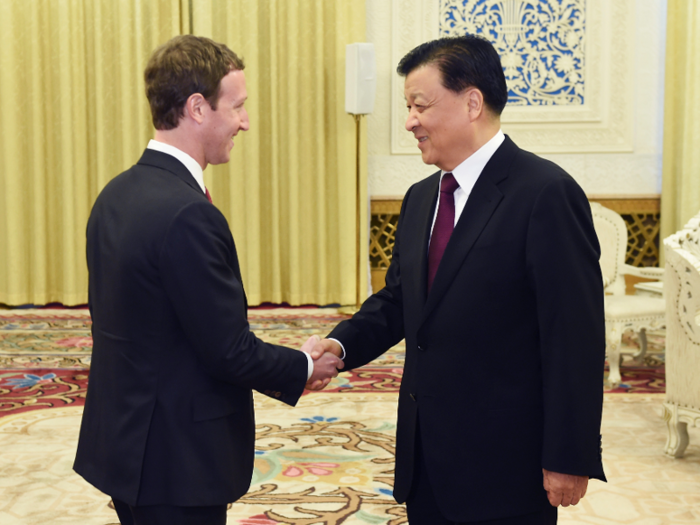
"We're increasingly seeing laws and regulations around the world that undermine free expression and people's human rights," Zuckerberg said. "These local laws are each individually troubling, especially when they shut down speech in places where there isn't democracy or freedom of the press. But it's even worse when countries try to impose their speech restrictions on the rest of the world."
Much of Zuckerberg's comments on laws limiting free speech were focused on China's strict media regulations. The country has been the subject of international controversy for restricting certain types of posts on social media and launching counter-campaigns against pro-Hong Kong activists on social media. The NBA also saw many of its Chinese business relationships jeopardized by a lone pro-Hong Kong tweet from an American employee.
"China is building its own internet focused on very different values, and is now exporting their vision of the internet to other countries," Zuckerberg said. " Until recently, the internet in almost every country outside China has been defined by American platforms with strong free expression values. There's no guarantee these values will win out. A decade ago, almost all of the major internet platforms were American. Today, six of the top ten are Chinese."
Zuckerberg also talked about Facebook's former VP for Latin American, Diego Dzodan, being arrested in Brazil for withholding encrypted WhatsApp data from law enforcement. Dzodan told authorities that the company couldn't produce the encrypted information, and was jailed for 24 hours before a judge ordered his release.

Zuckerberg also said that social media platform holders are responsible for many of the decisions that control people's speech online. Facebook and Twitter have been accused of having a leftist bias by President Donald Trump and both platforms are regularly criticized for their moderation policies.
"I understand people are concerned about bias and making sure their ideas are treated fairly," Zuckerberg said. "Frankly, I don't think we should be making so many important decisions about speech on our own either. We'd benefit from a more democratic process, clearer rules for the internet, and new institutions."
Last month Facebook announced that it would establish an oversight board to make content policy decisions. The board will have up to 40 members and is funded by a independent trust.
"Building this institution is important to me personally because I'm not always going to be here, and I want to ensure the values of voice and free expression are enshrined deeply into how this company is governed," Zuckerberg said.
He added that while Facebook wont allow speech or expression that promote violence, the company will err on the side of allowing expression rather than restricting it. That includes protecting posts and ads that may contain misinformation, so long as they don't lead to harm.

Zuckerberg said the world is in a state of tension caused by globalization and the spread of technology, comparing the current moment to World War I and the American Civil Rights moment.
However, he said the tension has also led to distrust, and people are trying to restrict one another's voices to protect their own political interests.
"Increasingly, we're seeing people try to define more speech as dangerous because it may lead to political outcomes they see as unacceptable," Zuckerberg said. "Some hold the view that since the stakes are so high, they can no longer trust their fellow citizens with the power to communicate and decide what to believe for themselves."
Zuckerberg said that this type of censorship could do more long term damage to the country's democratic process than the speech it intends to silence.
 Saudi Arabia wants China to help fund its struggling $500 billion Neom megaproject. Investors may not be too excited.
Saudi Arabia wants China to help fund its struggling $500 billion Neom megaproject. Investors may not be too excited. I spent $2,000 for 7 nights in a 179-square-foot room on one of the world's largest cruise ships. Take a look inside my cabin.
I spent $2,000 for 7 nights in a 179-square-foot room on one of the world's largest cruise ships. Take a look inside my cabin. One of the world's only 5-star airlines seems to be considering asking business-class passengers to bring their own cutlery
One of the world's only 5-star airlines seems to be considering asking business-class passengers to bring their own cutlery Healthy choices for summer: 7 soups to support your weight loss goals
Healthy choices for summer: 7 soups to support your weight loss goals
 India's pharma exports rise 10% to $27.9 bn in FY24
India's pharma exports rise 10% to $27.9 bn in FY24
 Indian IT sector staring at 2nd straight year of muted revenue growth: Crisil
Indian IT sector staring at 2nd straight year of muted revenue growth: Crisil

Copyright © 2024. Times Internet Limited. All rights reserved.For reprint rights. Times Syndication Service.